Ketamine therapy has shown promising results for individuals suffering from Post-Traumatic Stress Disorder (PTSD). Unlike traditional antidepressants, which can take weeks to show effects, ketamine has a rapid onset of action, often providing relief within hours or days. Research has indicated that ketamine can help reduce the severity of PTSD symptoms, including intrusive thoughts, flashbacks, and hyperarousal. This is particularly beneficial for patients who have not responded well to conventional treatments. The effectiveness of ketamine in treating PTSD is believed to be linked to its ability to enhance synaptic connections in the brain, promoting neural plasticity and improving mood regulation.
Clinical studies and evidence suggest that ketamine therapy can significantly improve the quality of life for PTSD patients. Many individuals report a noticeable decrease in their symptoms after just a few sessions. While ketamine is not a cure for PTSD, it offers a valuable alternative for those seeking faster relief and better management of their condition. As ongoing research continues to explore its long-term benefits and potential, ketamine therapy remains a hopeful option for many individuals struggling with the debilitating effects of PTSD.
What is Ketamine Therapy?
Ketamine therapy involves the use of ketamine, a medication traditionally known for its anesthetic properties, to treat various mental health conditions. In a therapeutic setting, ketamine is administered at sub-anesthetic doses, either through intravenous (IV) infusions, intranasal sprays, or oral lozenges. The primary aim is to harness ketamine’s unique ability to rapidly alleviate symptoms of depression, anxiety, PTSD, and other mood disorders. Unlike conventional antidepressants that may take weeks to show effects, ketamine often provides relief within hours, making it a valuable option for individuals in acute distress or those who have not responded to other treatments.
The mechanism behind ketamine’s therapeutic effects is thought to involve the modulation of glutamate, a neurotransmitter associated with mood regulation and synaptic plasticity. By enhancing glutamate activity, ketamine helps promote the growth of new neural connections, which can lead to improved mood and cognitive function. During a ketamine therapy session, patients are typically monitored in a controlled environment to ensure safety and efficacy, with sessions lasting about 40 minutes to an hour. The rapid and profound effects of ketamine therapy have made it a groundbreaking option in the field of mental health treatment.
Effectiveness of Ketamine for PTSD
The effectiveness of ketamine for treating PTSD has been a significant area of interest in recent mental health research. Clinical studies have demonstrated that ketamine can provide rapid and substantial relief from PTSD symptoms, often within hours of administration. This is particularly advantageous for individuals who have not responded to traditional treatments such as selective serotonin reuptake inhibitors (SSRIs) or psychotherapy. Ketamine’s unique mechanism of action, involving the modulation of glutamate and enhancement of synaptic plasticity, is believed to underlie its quick and potent effects on mood and anxiety-related symptoms.
In addition to its rapid onset, ketamine therapy has shown promise in reducing the severity of core PTSD symptoms, including intrusive memories, avoidance behaviors, negative alterations in mood and cognition, and hyperarousal. Patients often report a significant improvement in their overall quality of life and daily functioning after undergoing ketamine treatments. While the duration of ketamine’s effects can vary, many patients experience lasting benefits with a series of treatments, and ongoing maintenance sessions may be recommended to sustain the therapeutic gains. As research continues, ketamine therapy is emerging as a valuable and effective option for managing the challenging symptoms of PTSD.
How Long Does Ketamine Therapy Work for PTSD?
The duration of ketamine therapy’s effectiveness for PTSD can vary depending on the individual and the treatment protocol. Typically, the acute effects of ketamine, such as rapid relief from PTSD symptoms, can be observed within hours to days after administration. However, these effects are often temporary, lasting from a few days to a few weeks. For sustained relief, a series of ketamine treatments is usually recommended. A common regimen might involve multiple sessions over several weeks, followed by maintenance treatments as needed.
Studies have shown that repeated ketamine infusions can extend the duration of symptom relief. Patients who undergo a series of treatments often experience more prolonged benefits, with some reporting significant improvements lasting several months. To maintain these therapeutic gains, ongoing maintenance sessions may be required, typically spaced out over weeks or months. The exact schedule and frequency of these sessions can be tailored to the individual’s response to treatment and their specific needs. As ongoing research continues to explore the long-term effects of ketamine therapy, it remains a promising option for managing PTSD with the potential for sustained symptom relief.
Does Spravato Work for PTSD?
Spravato (esketamine) has shown promise as a treatment for PTSD and is a form of ketamine therapy offered at Luxury Psychiatry Clinic. Esketamine, the active ingredient in Spravato, is a derivative of ketamine and is administered as a nasal spray. It has been approved by the FDA for treatment-resistant depression, and emerging research suggests it can also be effective for PTSD. Spravato works by targeting the NMDA receptors in the brain, which helps to restore synaptic connections and improve neural plasticity, thereby alleviating symptoms of mood disorders.
Patients receiving Spravato for PTSD often experience rapid symptom relief, similar to traditional ketamine therapy. Clinical trials and anecdotal evidence have indicated that Spravato can significantly reduce the severity of PTSD symptoms, including intrusive thoughts, hyperarousal, and avoidance behaviors. The convenience of the nasal spray format makes it accessible and less invasive than IV infusions, enhancing patient comfort and compliance. At Luxury Psychiatry Clinic, Spravato is administered under strict medical supervision, ensuring safety and efficacy. While further research is needed to fully establish its long-term benefits for PTSD, current findings are encouraging and support the use of Spravato as a viable treatment option for those struggling with this challenging condition.
Fight PTSD with Luxury Psychiatry Clinic
At Luxury Psychiatry Clinic, we understand the profound impact PTSD can have on your life. Our comprehensive approach to treatment includes cutting-edge therapies like ketamine and Spravato, designed to provide rapid relief and long-lasting improvement. With a team of experienced professionals dedicated to your mental health, we offer a supportive and compassionate environment where you can begin your journey to recovery.
Our state-of-the-art facilities and personalized treatment plans ensure that you receive the highest quality care tailored to your specific needs. Whether you have not found success with traditional treatments or are seeking a more advanced solution, Luxury Psychiatry Clinic is here to help you regain control over your life.
Don’t let PTSD dictate your future. Reach out to Luxury Psychiatry Clinic today and take the first step towards healing and reclaiming your well-being. Our dedicated team is ready to support you every step of the way. Contact us now to learn more about our innovative treatment options and to schedule a consultation.





















